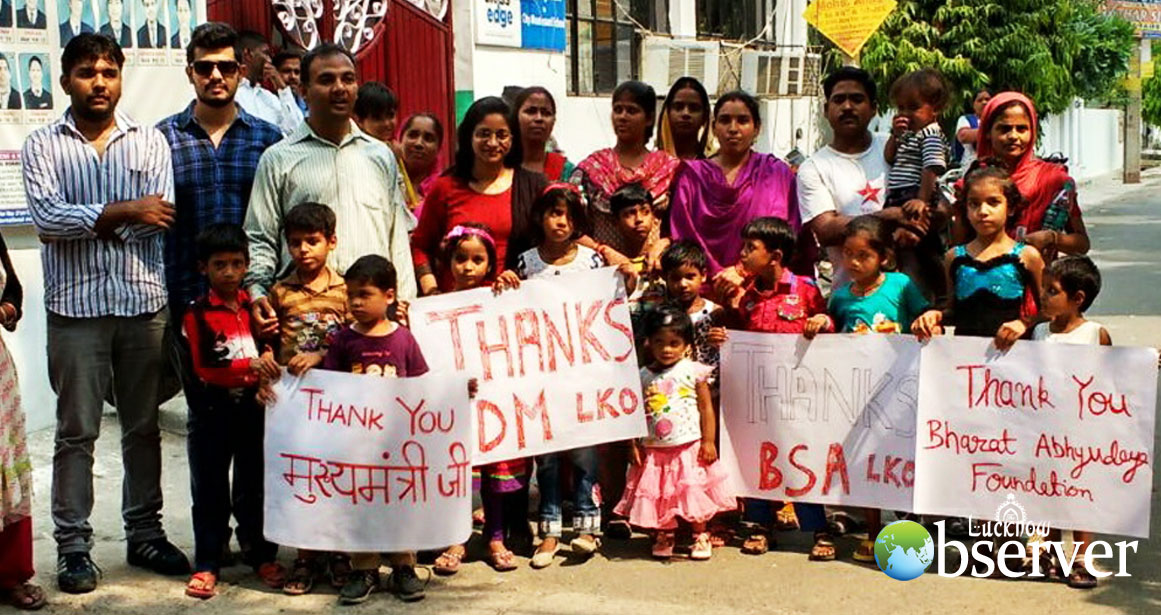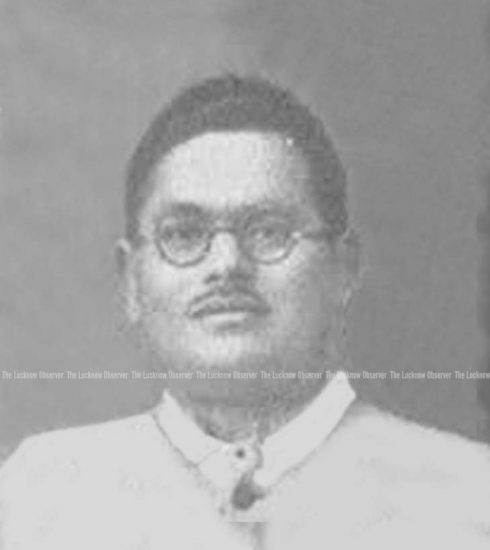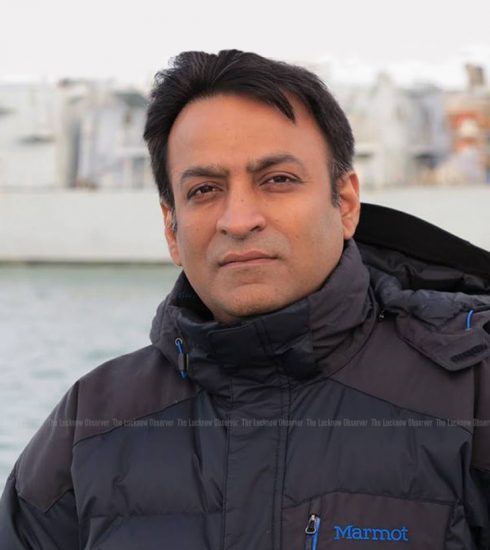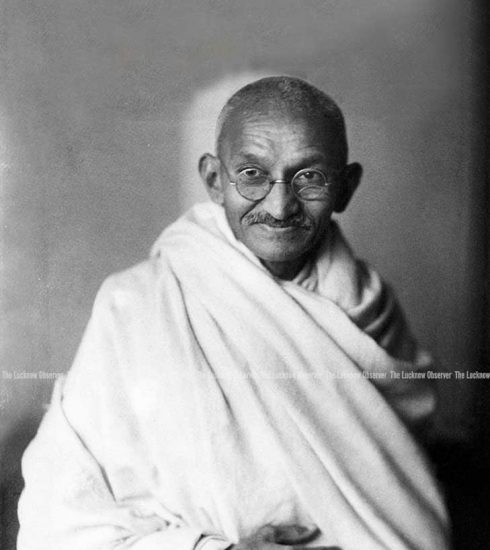Samina Bano
Wings to a Thousand Distant Dreams
Samina Bano, a seemingly ordinary girl, worked day and night to make the dream of education for all a reality. With the Right to Education listed in our Fundamental Rights, one might think it would have been easy. The reality, however speaks otherwise
In an age where poor children begging on roadside is a common sight, who among us thinks of giving it a sincere thought, to actually work towards start changing the ground situation? One flicks a coin or two at them to conveniently get over the temporary guilt clutching our hearts at the red light. One doesn’t go beyond the question of why, why won’t these children just study instead of begging when Right to education is one of fundamental rights. Yet there exists one, who left no stone unturned to boldly reason with the authorities and work tirelessly for the children not lucky enough to have an economically privileged background.
Samina Bano, equipped with management degree from Indian Institute of Management, Bangalore and B. Tech from Government College of Engineering, Pune, seemed already settled for corporate life in US, but not yet. She was always troubled by the persisting inequality between children untouched by economic botheration and those for whom even basic necessities of life would be luxury. How in the former’s case the facility of quality education would always go unnoticed, while for the poor it would forever remain an unfulfilled dream. To make this dream a reality for the latter, Samina Bano left a comfortable lifestyle in Philadelphia, where she was working as a management consultant with Deloitte Consulting LLP (S&O).
Samina had an idea for the cause taking shape in her mind. In 2012 she started BAF (Bharat Abhyudaya Foundation), a non profit organisation committed to the cause of elementary education reform at institutional level. The organisation works closely with top leadership of State and Central Government to drive better policies and increase efficiency in imparting quality education through effective monitoring mechanisms.
The organisation’s main focus has been effective implementation of Right to Education clauses and innovative initiatives of building accountability around the system. She understands the need of giving poor children the opportunity to “study respectfully” and the need to consider it as their right. With five years of experience of working in other organisations like Texas Insrtuments and Proctor and Gamble at India and Singapore. From earning a hefty package, she is dependent on donations from her colleagues for her mission now.
Due to her extensive work in the field, her name is synonymous with RTE in UP. Chief Minister Akhilesh Yadav realised her efforts and gave her the freedom to work on, even if took deviating from the set pattern of government functioning.
Sabina’s comrade in arm Aamir Hussain left his job in Spain and has been working with her on RTE since Dec 2014. Having lived in Spain, he realized that our Indian society has unjust amount of social divide. From childhood we are silently taught that the poor are just different people. For example in Spain the ‘Safai Karamcharis’ were respectfully called ‘Senor/ Senora de Limpieza’ or ‘Cleaning Gentlemen/ Ma’am’. In short there the social divide just doesn’t exist and everybody is considered equal. But back home in India he witnessed rich are getting rich and becoming more proud whereas poor are getting poor and becoming more frustrated. In his opinion if this situation continues for some more years we could be facing a civil war kind of a thing. On returning to India while volunteering with a non-profit named Bhumi in Chennai, he came across something called Right to Education Section 12. It was kind of a eureka moment and it struck him that this is what he was looking for all this time.. Unable to control his surge to contribute, later same year he quit his job to come back and join the innovative startup Bharat Abhyudaya Foundation .
Generally children from poor backgrounds are easily accommodated in Karamat or Sarvodya Vidyalyas, where there is (as observed in many cases) no promise of learning. The teachers instead of teaching often make students work. So they go to school, just for the sake of it, giving an impression of acquiring knowledge. Instances where students of fifth grade not being able to read a word, leave alone chapters, are not uncommon. On the face value, they go to school (however small that number be) and which Governments can put on registers and boast of. Changing the situation within these kinds of schools is difficult and a long process. Other than keeping a check on them, another alternative was to turn to schools that are more promising, ones that are seen as those ìfor the children of middle and higher classesî. Probably this is what drove Samina to go to big schools in the city and ask for poor children’s right, the only one that could be practiced with the support of these schools.
Her fight for RTE was a significant one with Lucknow’s legendary City Montessori School (CMS), which boasts of holding a Guinness Book of World Records for highest number of students studying in a school in one city. The school was reported to have denied admission to 31 poor students, because of ìscarcity of spaceî in its Indira Nagar branch or maybe because it is bound by a straight-jacketed system that won’t accommodate such changes easily. Delhi Public School branch of Sector 19, Indira Nagar admitted one but turned him down later as he approached press. Yet another in the line is Universal Public School in Madiyaon, that turned down the admission of two students as they couldn’t buy uniform and books for themselves.
So the examples boil down to the fact that in reality, in spite of the existence of Right to Education, there are very few institutions that practice it on the ground level. It takes some nerve to cling on to a cause, when the path is not smooth.
Samina, with her determination to change how things were, did not hesitate to protest on road, when persuation did not work. Lucknow was new to such protests and she is said to have turned her focus towards primary education in Uttar Pradesh, noting the importance of its role as the foundation of learning. As mentioned earlier, Private schools did not pay heed to the rules while education department had no zeal to act on the gap in implementation of RTE. Touring across the state, she held several meetings with Other than meeting the Chief Minister himself, she had several meetings with district level education officials and district administration. Even private schools were invited but not every school responded with the same enthusiasm.
After a lot of work, with the administration and authorities on her side, getting children to attend school was still a major problem. Locating poor children whose parents allow them to attend school was a challenge. Putting her resources at disposal, she collected all the data needed to materialise the plan of identifying the children and their locations and even filling admission forms on the way. ìThe numbers were less in the beginning but slowly it picked. Now, even some prestigious schools have agreed and offer admission to poor students,î she informs.
She with her team, has made circuitous processes like enrolling students lucid. Samina’s few staff members rush to locate the child after collecting basic information about children and their families seeking admission. Even a missed call is enough for enrolling a child. In her two room rented office in Gomti Nagar, application forms are available for free and every kind of help is available if someone comes with similar problem. Noting her efforts, CM Yadav has also taken a step in the direction to extend the date for admissions under the RTE on her request to accommodate more children.
My School My Voice, is yet another campaign conceived by her which is aimed at engaging school children for their schools. Getting children to say comment on the conditions and teachers in their school and getting them to open up about the problems, the facilities they have. This has helped in keeping in check the teachers who would skip classes or not complete their duties. Basic needs like that of clean drinking water were also realized after students raised these issues and finally ROs installed in different schools.
Samina is looking forward to making reservation of 25 % of seats for poor students, a reality as schools don’t function on lines of RTE. Though due to her efforts, thousands of poor children are already admitted in big schools in the city, she is looking forward to increasing the numbers to as much as it takes to cover everyone who isn’t already under the umbrella.
Sumbul Zehra
Writer is a student of Journalism and works as a freelance writer.
(Published in The Lucknow Observer, Volume 2 Issue 20, 5th November 2015)









